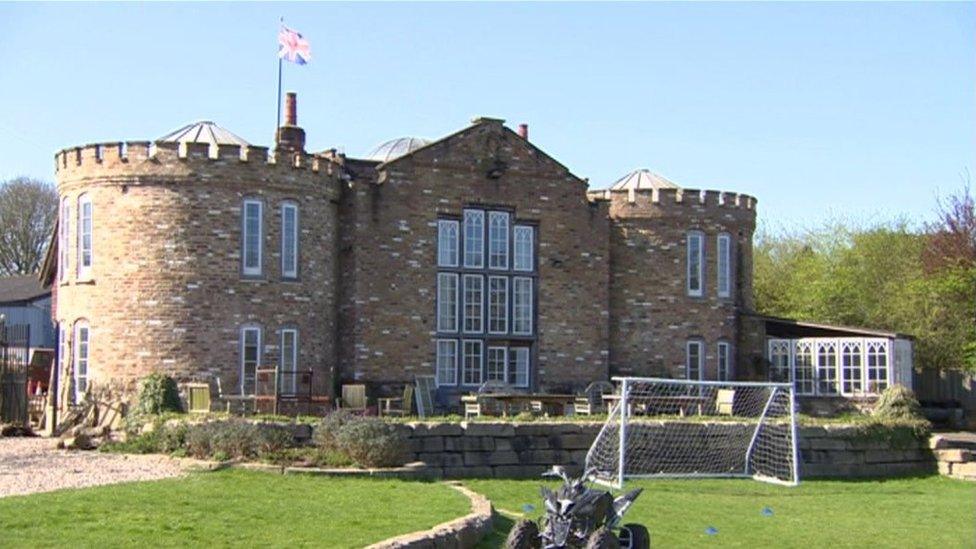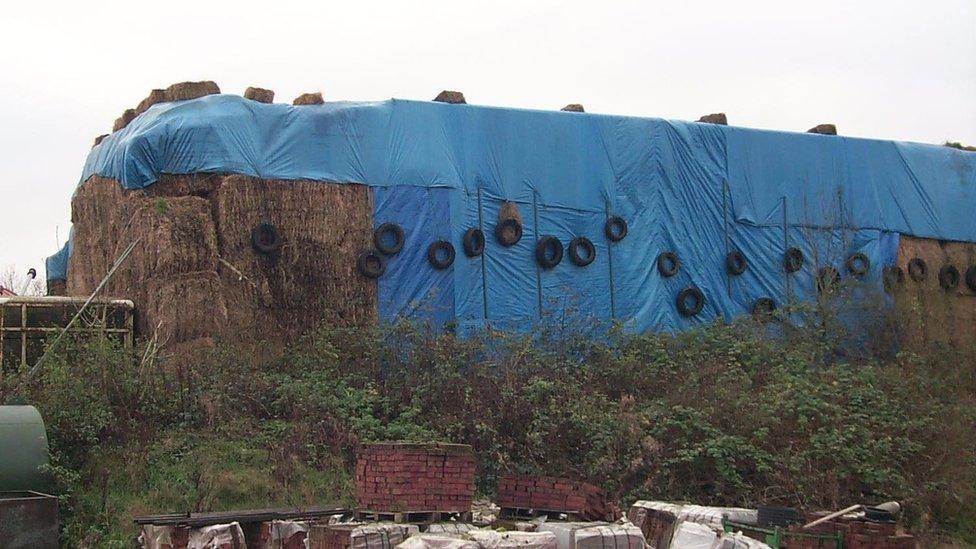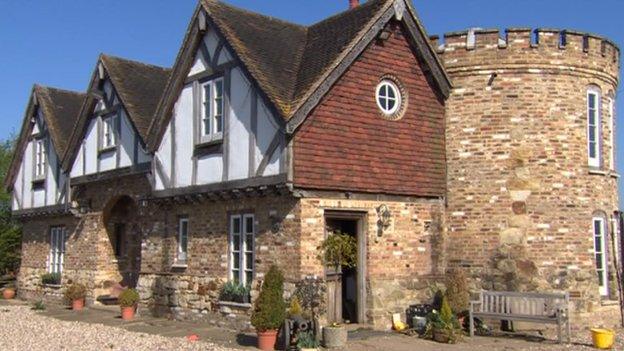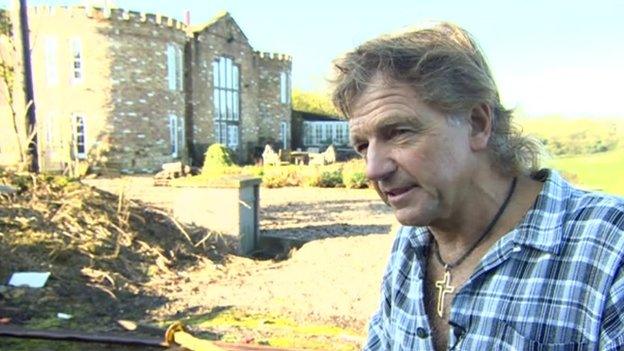Warrant for arrest of Surrey 'hidden castle' farmer Robert Fidler
- Published

Robert Fidler built the house in 2002 and hid it behind hay bales for four years
A High Court judge ordered the arrest of a farmer who refused to tear down a mock-Tudor castle he built in Surrey without planning permission.
Robert Fidler hid the four-bedroom home behind hay bales for four years before it was discovered by officials.
He failed to appear at the High Court for a contempt of court hearing after refusing to demolish the house.
A warrant was issued for his arrest and the case was adjourned until 2 November.
Mr Fidler then arrived at the court after the hearing, saying he had missed the case because he thought it was taking place later in the day.
He said: "Apparently, at some point, without my knowledge, it's been changed and there's a warrant out for my arrest."
He said he was still "hopeful" the property could be saved from demolition, but he would be "homeless" if it was knocked down.
Mr Fidler built the house in 2002 at Honeycrock Farm in Salfords.
Reigate and Banstead Borough Council first ordered the house to be knocked down in 2007, before a government planning inspector rejected Mr Fidler's appeal a year later.

Mr Fidler hid the house behind hay bales after moving his family in
This decision was upheld first by the High Court in 2010 and then by the Court of Appeal.
Mr Fidler had been due to face a claim of contempt of court at the High Court earlier, brought by the council after he failed to knock the house down by the 26 June deadline, but he failed to attend.
Judge Mr Justice Dove said it would be unusual to proceed without offering him "one last opportunity to provide some explanation of matters relating to the breach of the injunction".
If the claim is upheld, Mr Fidler could face a jail sentence.
In 2008, he said he hid the four-bedroom "castle" because he believed a house that stood for four years without objection had a legal right to remain.
In a statement the council said it would set an "unacceptable precedent for development in the green belt" if the house was allowed to remain.
- Published26 August 2015

- Published26 June 2015

- Published16 April 2015

- Published4 November 2014
